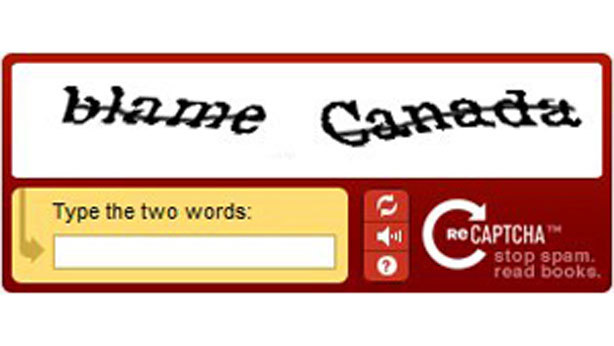Two massive online collaboration projects
In the courtyard of the 21st century. According to the predictions of science fiction writers of the 20th century, we should live with flying cars outside the window and robots that do everything for us, or even fly to other star systems. Unfortunately, this is not the case. But science fiction writers failed to predict something, or rather could not predict the impact that the Internet had on society and civilization as a whole. I will not be able to describe the impact of the Internet on society, this will require not one hundred “hubs”, but even more, but I will highlight an interesting direction for me, namely crowdsourcing.
Perhaps I'll start with the story about the CAPTCHA project.. This project is familiar not only to IT specialists, but also to every Internet user. He annoys everyone, but without him our life would be terrible. The amount of spam would be many times more. But it was such an annoying project like CAPTCHA that pushed Louis von Ana from Carnegie University - Mellon to create the reCAPTCHA project. This project also carried the function of protection against bots. One component was added that is invisible to ordinary users - assistance in digitizing book texts. Now, when entering text from a picture, the user is prompted to enter two words. The first is already known to the system, and the second word is unknown to the system and it is not able to recognize it by the text recognition program. The second word is taken from a source that requires recognition (for example, a book). Checking and passing the "captcha" is carried out according to the word that the system knows. It is not necessary to enter an unknown word, since the result is fixed on the basis of statistics, and not the response of one user, which allows you to choose the right option. In September 2009, reCAPTCHA was acquired by Google . And in the spring of 2012, Google launched an experiment onrecognition of images from Google Maps and Google Street View using the reCAPTCHA service.

Read on under the cut.
Found one more ancient post on a habr: How reCAPTCHA works? (he is very informative).
All this and much more. Louis von Ahn tells in his speech at the TED conference:
In this speech, Louis begins to talk about the Duolingo project , which was previously written by black_bunny . I will not retell what has already been written, I will only add that at the moment this project has advanced far ahead, and these guys, who exploit hundreds of millions of people around the world, have become my idols. This is a demonstration of how ideas are changing the world, and most importantly, now even a small group of people can create a world that can create a service for online interaction and collaboration of people around the world.
Perhaps I'll start with the story about the CAPTCHA project.. This project is familiar not only to IT specialists, but also to every Internet user. He annoys everyone, but without him our life would be terrible. The amount of spam would be many times more. But it was such an annoying project like CAPTCHA that pushed Louis von Ana from Carnegie University - Mellon to create the reCAPTCHA project. This project also carried the function of protection against bots. One component was added that is invisible to ordinary users - assistance in digitizing book texts. Now, when entering text from a picture, the user is prompted to enter two words. The first is already known to the system, and the second word is unknown to the system and it is not able to recognize it by the text recognition program. The second word is taken from a source that requires recognition (for example, a book). Checking and passing the "captcha" is carried out according to the word that the system knows. It is not necessary to enter an unknown word, since the result is fixed on the basis of statistics, and not the response of one user, which allows you to choose the right option. In September 2009, reCAPTCHA was acquired by Google . And in the spring of 2012, Google launched an experiment onrecognition of images from Google Maps and Google Street View using the reCAPTCHA service.

Read on under the cut.
Found one more ancient post on a habr: How reCAPTCHA works? (he is very informative).
All this and much more. Louis von Ahn tells in his speech at the TED conference:
In this speech, Louis begins to talk about the Duolingo project , which was previously written by black_bunny . I will not retell what has already been written, I will only add that at the moment this project has advanced far ahead, and these guys, who exploit hundreds of millions of people around the world, have become my idols. This is a demonstration of how ideas are changing the world, and most importantly, now even a small group of people can create a world that can create a service for online interaction and collaboration of people around the world.
